Did You Know That Most, If Not All, The “Fresh Food” You Buy in the Supermarket is Full of Chemicals?
When we stroll through the aisles of our local supermarket, we often believe that the fresh fruits and vegetables we place in our carts are the epitome of healthy eating. However, a closer look reveals that much of this produce is laden with chemicals that could pose significant health risks.
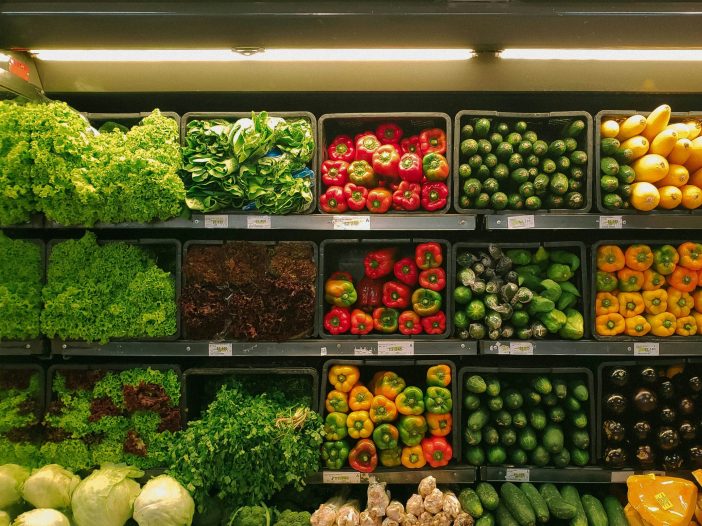
The Hidden Pesticides
A 2024 report by the Environmental Working Group (EWG) revealed alarming levels of pesticide contamination in many common fruits and vegetables. The EWG’s "Dirty Dozen" list highlights the most contaminated produce, including strawberries, spinach, kale, and apples. These items were found to have residues of multiple pesticides, some of which are linked to serious health issues such as cancer, hormone disruption, and reproductive problems. For instance, strawberries often contain over 20 different pesticides, and nearly all samples tested positive for at least two pesticide residues (EWG).
In the UK, similar concerns are raised by organisations such as PAN UK (Pesticide Action Network UK). They have found that many fruits and vegetables sold in UK supermarkets also contain pesticide residues. For instance, apples, pears, and grapes are frequently highlighted for their high levels of pesticide contamination. The UK government’s Expert Committee on Pesticide Residues in Food (PRiF) regularly publishes monitoring results, which often show a significant presence of pesticide residues in fresh produce.
For more information, visit PAN UK or Food Manufacture.
The Chemicals We Consume
The issue extends beyond just pesticides. Chemicals used in packaging, food additives, and contaminants from the environment also find their way into our food. The FDA in the USA and the Food Standards Agency (FSA) in the UK monitor these substances to "ensure" they do not pose a health risk, yet the complexity of their interactions and long-term effects are still not fully understood. For instance, chemicals like fludioxonil, pyrimethanil, and pyraclostrobin, commonly found on produce, have been linked to hormone disruption, reproductive harm, and potential carcinogenic effects.
Baby Food Isn't Spared
Even baby food is not free from contamination. The USDA's recent tests found that while non-organic baby foods in the USA are less contaminated than their whole fruit and vegetable counterparts, they still contain pesticide residues. This suggests that while manufacturers may be taking steps to reduce pesticide levels in baby food, the presence of these chemicals is still a concern. In the UK, similar testing by the FSA has shown that baby foods can also contain pesticide residues, although levels are generally lower than in fresh produce.
Making Safer Choices
Given the pervasive presence of chemicals in supermarket produce, many consumers are looking for safer alternatives. One highly effective approach is to shop locally and directly with farmers. This method not only allows for greater transparency regarding how your food is grown but also supports local economies and reduces environmental impact.
Benefits of Shopping Locally
Transparency and Trust: When you buy directly from local farmers, you can ask questions about their farming practices, including the types of pesticides and fertilisers they use. This direct interaction helps build trust and ensures you are more informed about the food you consume.
- Fresher Produce: Local food often reaches your table much faster than supermarket produce, which can travel long distances and spend significant time in storage. Fresher food is not only more nutritious but also tastier.
- Support for Local Economies: Purchasing from local farmers helps sustain local agriculture and keeps money within your community. This support can lead to a stronger local economy and more resilient food systems.
- Environmental Benefits: Local food typically requires less transportation, which reduces carbon emissions. Additionally, small-scale farmers often employ more sustainable farming practices that are better for the environment.
- Reduced Chemical Use: Many local farmers, especially those selling at farmers' markets or through community-supported agriculture (CSA) programs, use fewer chemicals or adopt organic farming practices. By shopping locally, you can more easily find and choose these safer options.
Growing Your Own Food
Another excellent way to ensure the safety and quality of your produce is to grow your own food. While it requires some time and effort, the benefits are substantial:
- Control Over Inputs: Growing your own food allows you to control what goes into your soil and onto your plants. You can avoid synthetic pesticides and fertilisers entirely, opting for organic and natural methods instead.
- Healthier and Tastier Produce: Homegrown fruits and vegetables are often fresher and more flavourful than store-bought options. You can pick them at peak ripeness, which is when they are most nutritious.
- Physical and Mental Benefits: Gardening is a great form of physical exercise and has been shown to reduce stress and improve mental health. It provides a sense of accomplishment and a deeper connection to nature.
- Educational Opportunities: Growing your own food can be a valuable educational experience for children and adults alike. It teaches important lessons about biology, ecology, and the value of hard work.
- Cost Savings: While there might be an initial investment in seeds, tools, and soil, growing your own food can save money in the long run. It also offers the peace of mind that comes from knowing exactly how your food was produced.
While shopping locally and growing your own food may come with higher upfront costs, the long-term benefits to your health, community, and the environment make these choices worthwhile. By taking control of your food sources, you can significantly reduce your exposure to harmful chemicals and enjoy fresher, more nutritious produce. In an era where the safety of supermarket food is increasingly questioned, these proactive steps offer a viable path to healthier eating.
Conclusion
While the presence of chemicals in our fresh food is undeniable, being informed and making conscious choices can help mitigate the risks. By understanding the sources of these chemicals and opting for cleaner alternatives, we can take steps toward a healthier diet. As consumers, advocating for more stringent regulations and better farming practices can also drive change in the industry, leading to safer food for everyone.
Love,
nousana.
Join the movement
Quick link to our recent most favourite products
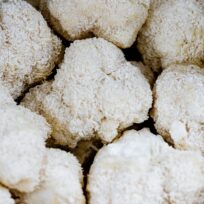
Lions Mane
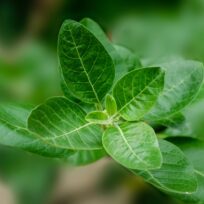
Ashwagandha
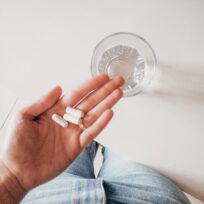
Marine Collagen

Rosewater
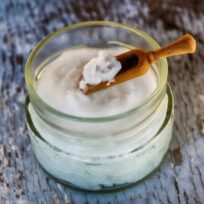
Coconut Oil
nousana is your place to discover your most fulfilled self, along with others on their path of inner exploration and growth. You're already amazing, just as you are. Let's grow together and become truly incredible!
Everyone's invited!
Join the monthly nousana newsletter now and never miss a beat! We want you and your incredible self to join the movement where you'll enjoy becoming part of our valued community. It's a place to share insights, thought provoking questions and journey towards being your best self. We promise to never spam you and we will never share your data. You can unsubscribe at any time - although we doubt you'll want to!
